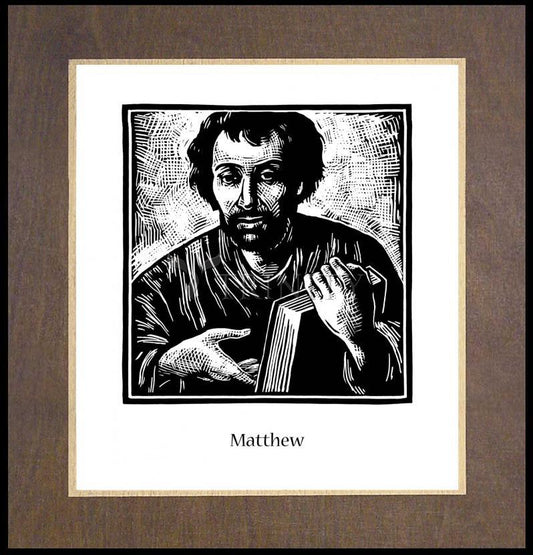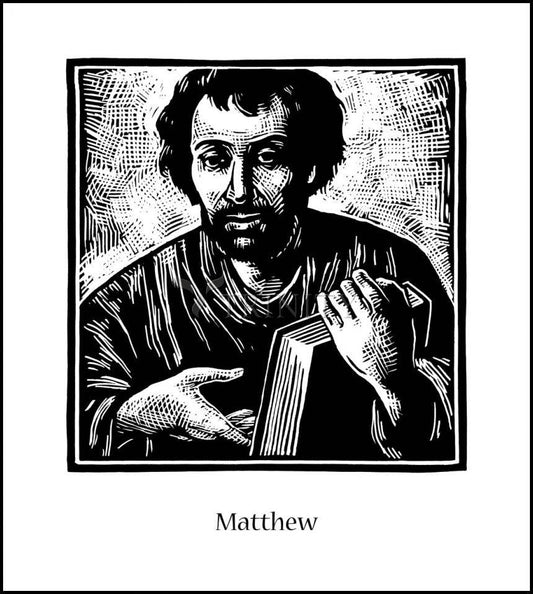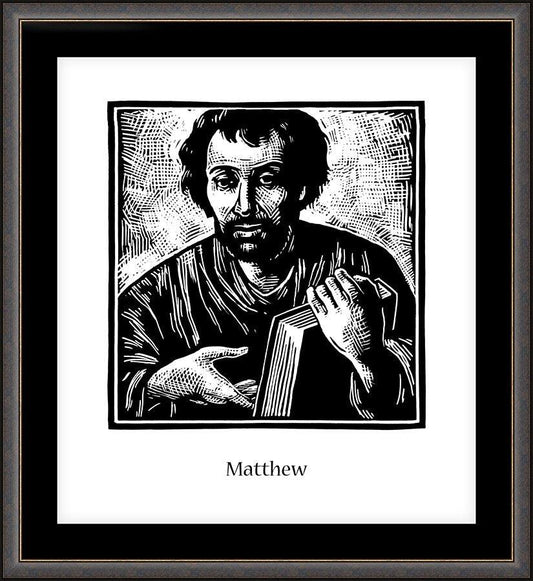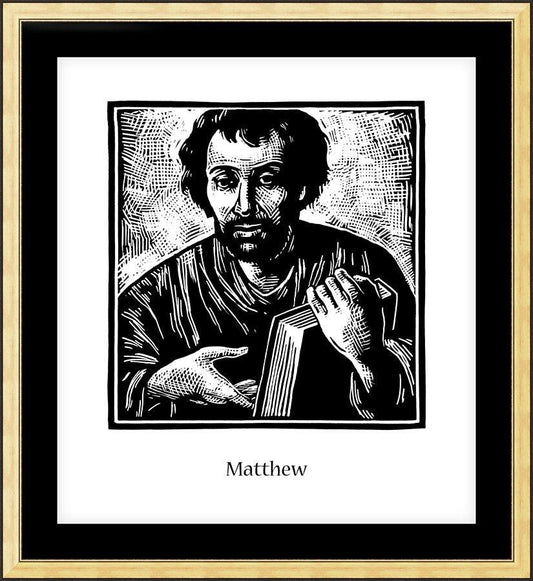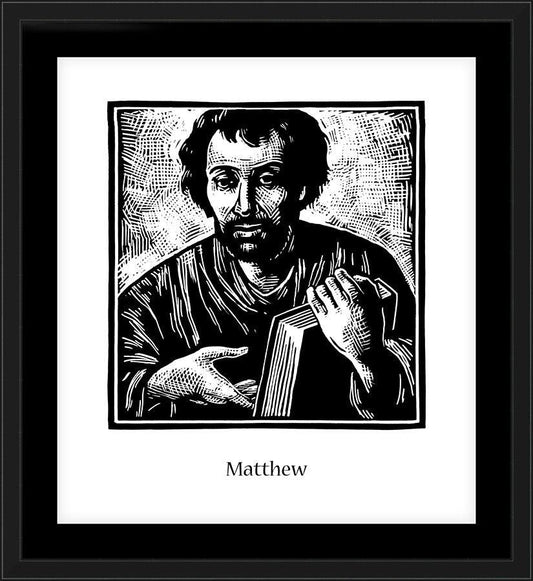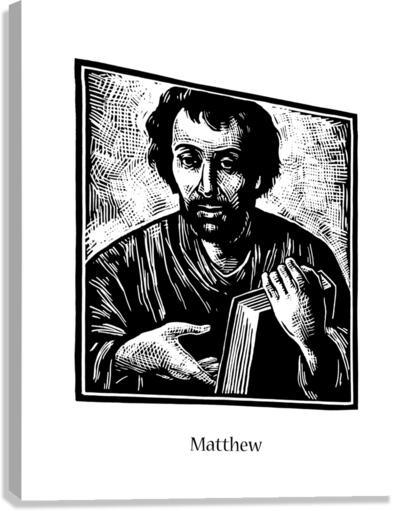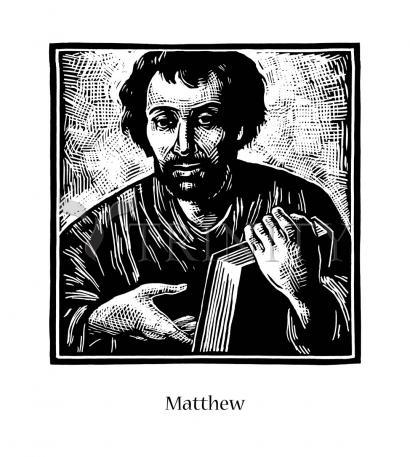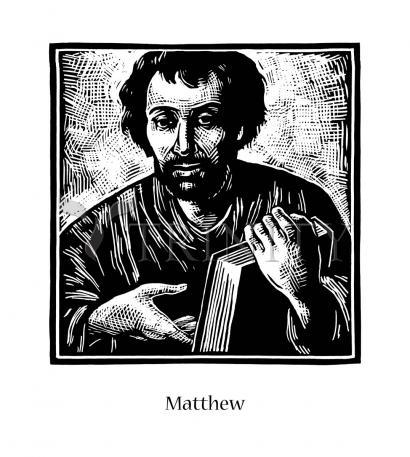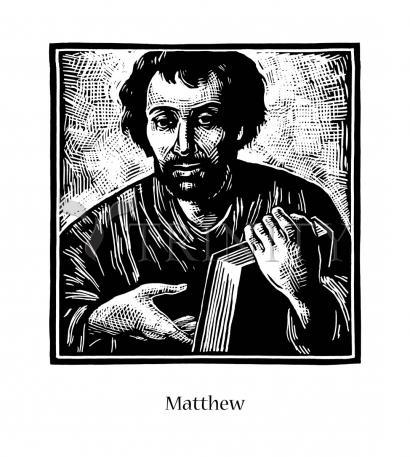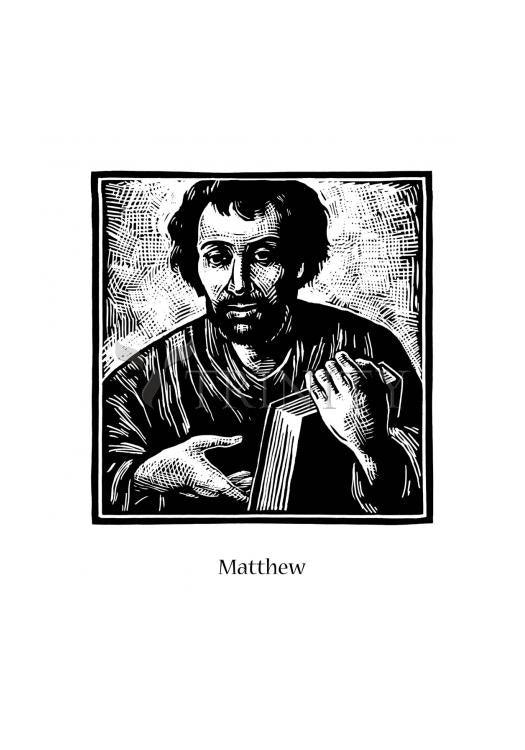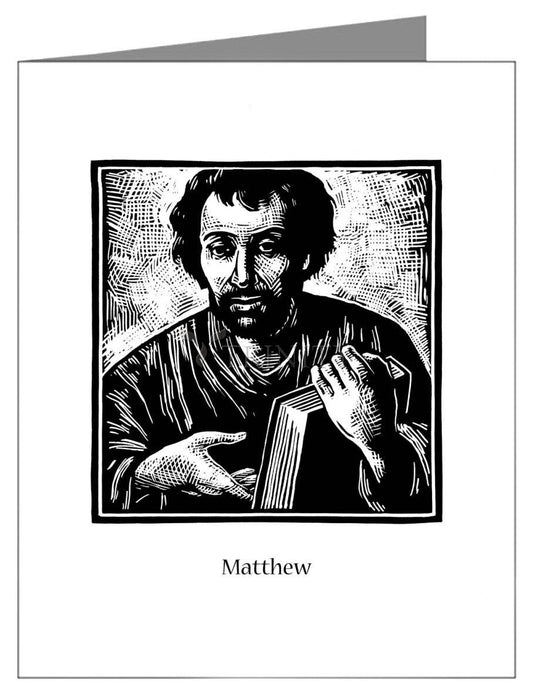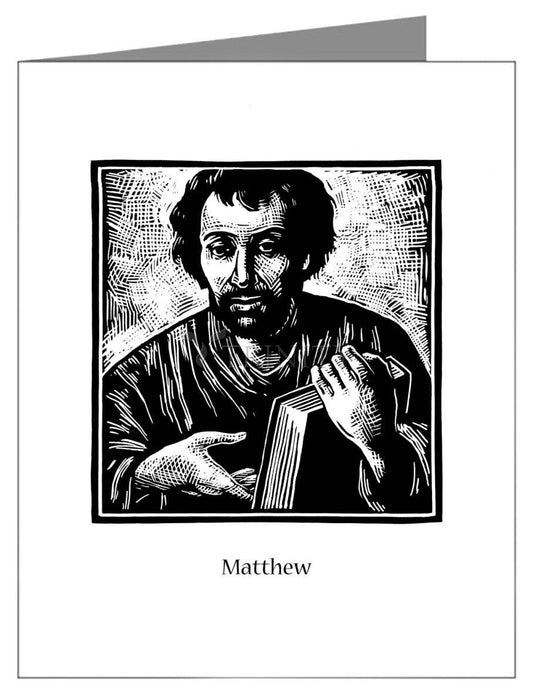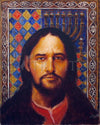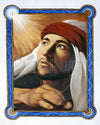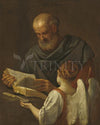One day Jesus was walking and saw a tax collector named Matthew sitting at a tax collection post, and said to him, "Follow me." And Matthew stood up and followed Him, and became one of His twelve apostles. Tax collectors in those days were social outcasts. Devout Jews avoided them because they were usually dishonest (the job carried no salary, and they were expected to make their profits by cheating the people from whom they collected taxes). Patriotic and nationalistic Jews hated them because they were agents of the Roman government, the conquerors, and hated them with a double hatred if (like Matthew) they were Jews, because they had gone over to the enemy, had betrayed their own people for money.
Thus, throughout the Gospels, we find tax collectors (publicans) mentioned as a standard type of sinful and despised outcast. Matthew brought many of his former associates to meet Jesus, and social outcasts in general were shown that the love of Jesus extended even to them. (Jesus numbered among his disciples persons of widely different backgrounds. They included not only Matthew, a former agent of the Roman government, but Simon the Zealot (not to be confused with Simon Peter).
Josephus tells us that the Zealots were fanatical nationalists, determined to drive out the Romans by guerrilla tactics, ambushes, assassinations, terrorist methods, or whatever worked. Their motto was, "No king but Messiah, no tax but the Temple, no friend but the Zealot." It is not clear that Simon was, or had been, a member of the group that Josephus describes, but it seems clear that he would have regarded himself as at the opposite end of the political spectrum from Matthew.)
The name "Matthew" means "gift of the LORD." Mark and Luke, in the story of his calling, name him "Levi." Perhaps this was his original name, and he received a new name from Jesus when he became a disciple. (It has also been suggested that he was simply a member of the tribe of Levi.)
Of Matthew's life after Pentecost the Scriptures tell us nothing. Later accounts of his life vary, some reporting that he was martyred, others that he died a natural death. The Christian community since early times has commemorated him as a martyr.
Whether the Apostle Matthew is also the Evangelist Matthew -- that is, whether the Apostle Matthew wrote the Gospel that bears his name -- is disputed. The Gospel itself does not say who wrote it, but the designation "according to Matthew" is very old.
In favor of his authorship it may be noted that (1) while Mark and Luke give the fourth pair of Apostles as "Matthew and Thomas," the Gospel of Matthew gives them as "Thomas and Matthew"; and (2) while Luke 5:29 explicitly states, and Mark 2:15 suggests, that Matthew gave a banquet for Jesus, Matthew 9:10 in describing the same banquet does not indicate who the host was. Both of these variations would be routine touches of modesty if Matthew was the author.
On the other hand, the gospel (1) does not have the manner of an eyewitness and (2) is thought by many scholars to contain material borrowed from Mark, whereas one would not expect someone who had been an eyewitness to borrow from someone who had not. Note: The view that Mark is an older Gospel than Matthew is widespread and not long ago many scholars regarded the matter as settled. However, there is respectable opinion holding that Matthew is the earliest Gospel after all.
Perhaps the Gospel was written by some early Christian, not an apostle, whose name was Matthew, and about whom nothing else is known. Early Christian readers, hearing the Gospel ascribed to "Matthew," would naturally associate it with the Apostle of that name, and so the ascribing of the work to the Apostle Matthew becomes common at an early date, by a perfectly natural misunderstanding.
Papias of Hierapolis, writing in the late first or early second century, says that Matthew compiled the sayings (Logia) of Jesus in Hebrew. Now the material common to Matthew and Luke, but not to Mark, includes sayings of Jesus but almost no narrative. It has therefore been conjectured that there was once a document (usually called Q), now lost, that is basically a collection of speeches by Jesus, and that Matthew (the evangelist) and Luke, had access to it while Mark did not. It has been suggested that Matthew (the apostle) is the author of this document Q, which may well have been first written in Hebrew (or Aramaic).
The Scripture readings associated with the day bear the themes of Matthew as a Gospel-writer (hence readings that speak of the Scriptures), Matthew as an Apostle, and Matthew as a sinner called by God's grace.
Prayer:
We thank thee, heavenly Father, for the witness of your apostle and evangelist Matthew to the Gospel of your Son our Savior; and we pray that, after his example, we may with ready wills and hearts obey the calling of our Lord to follow him; through Jesus Christ our Lord, who lives and reigns with you and the Holy Spirit, one God, now and forever.
"Excerpts from James Kiefer's Christian Biographies



